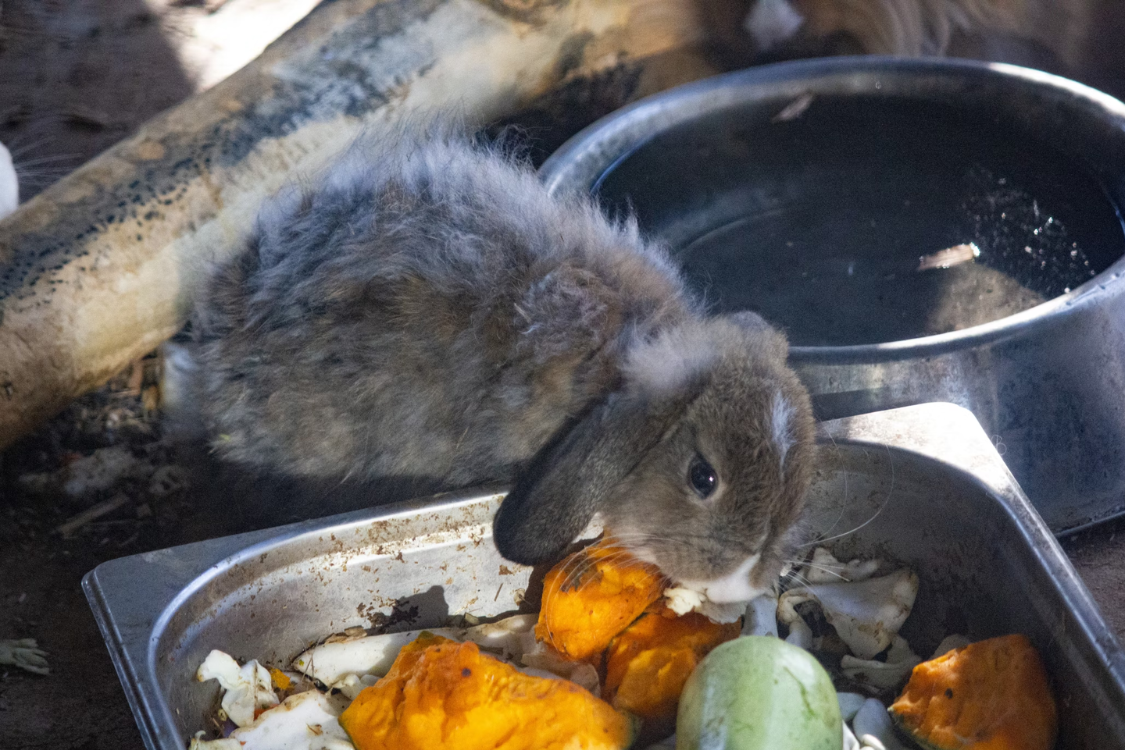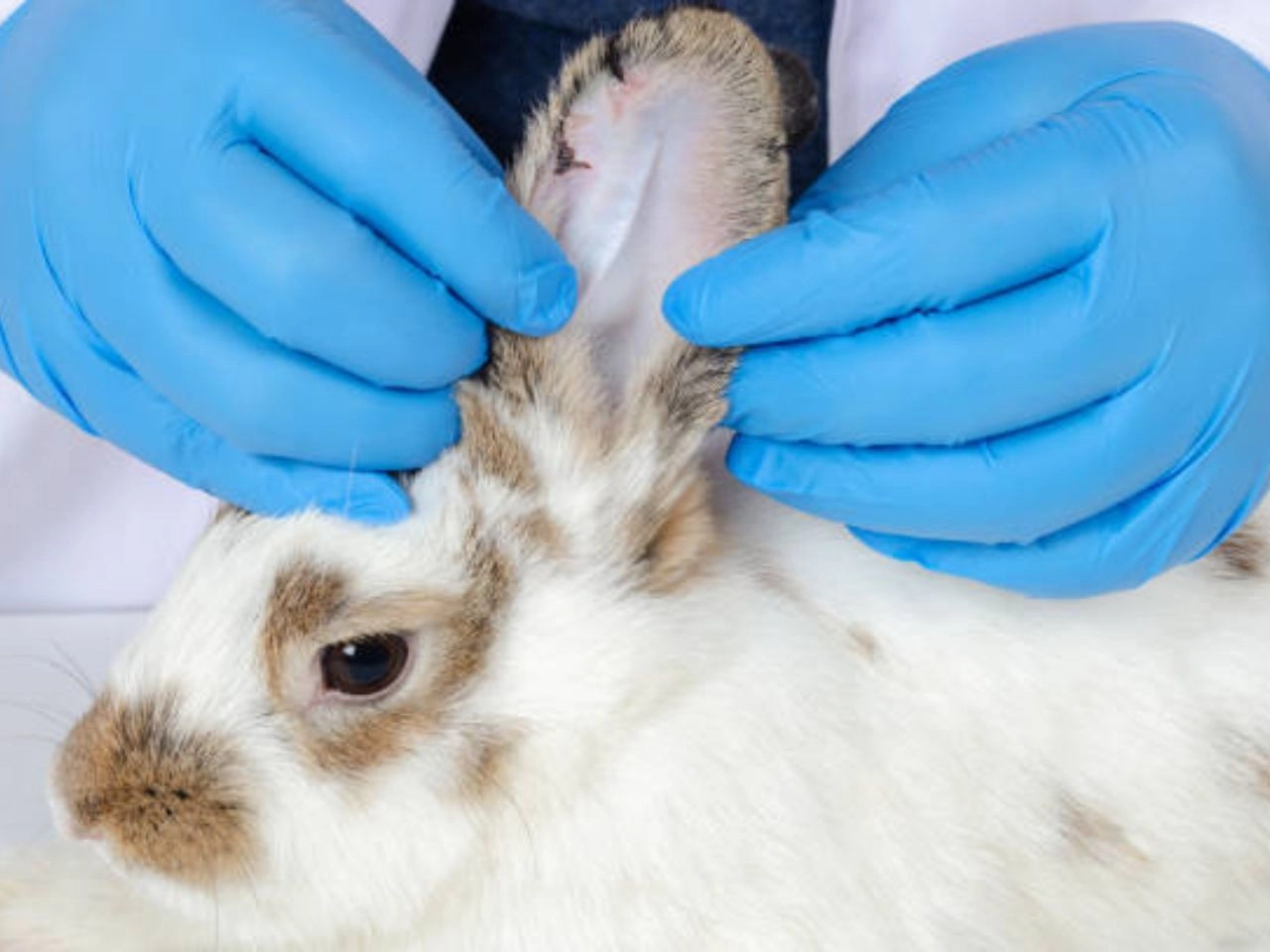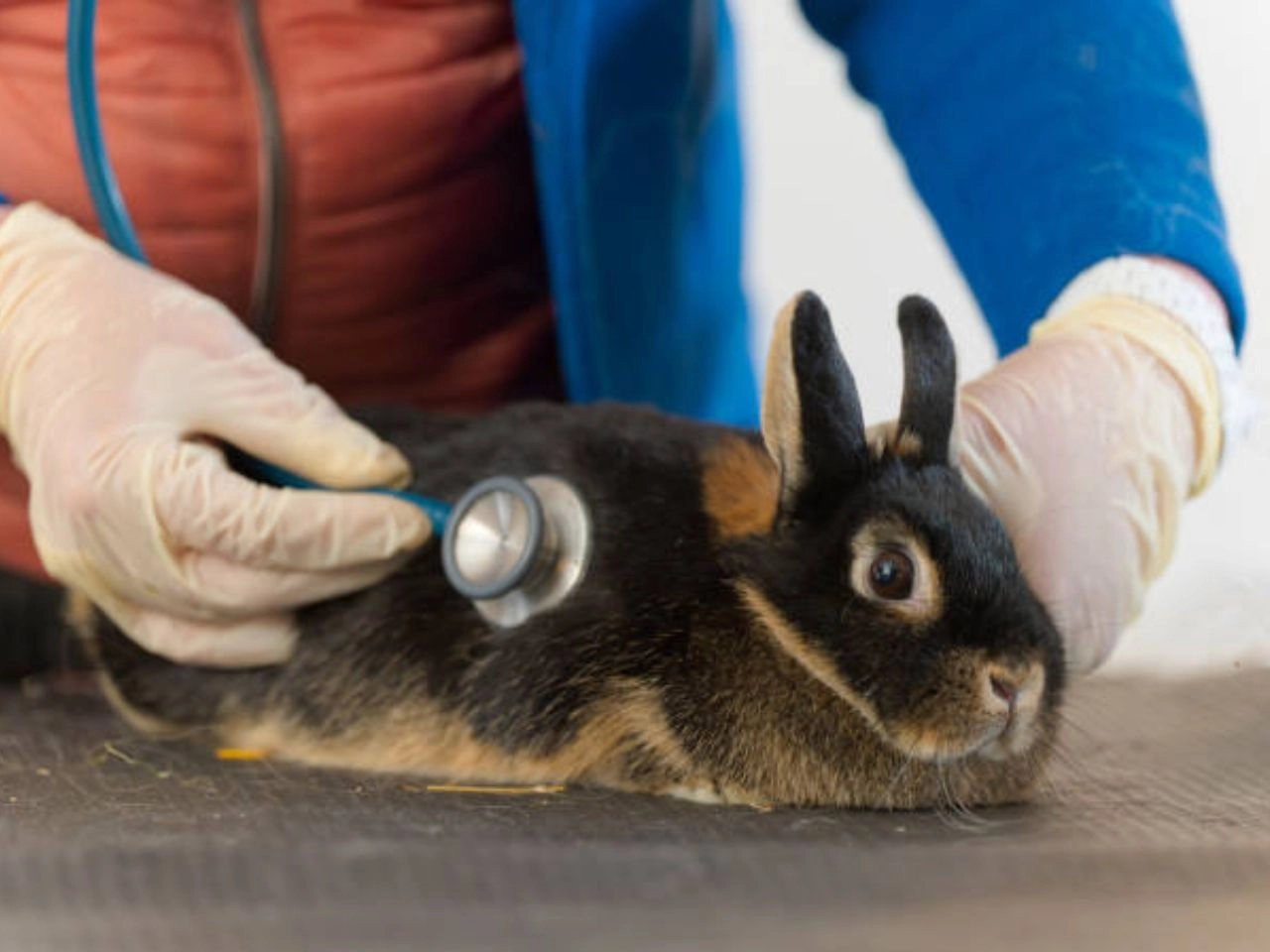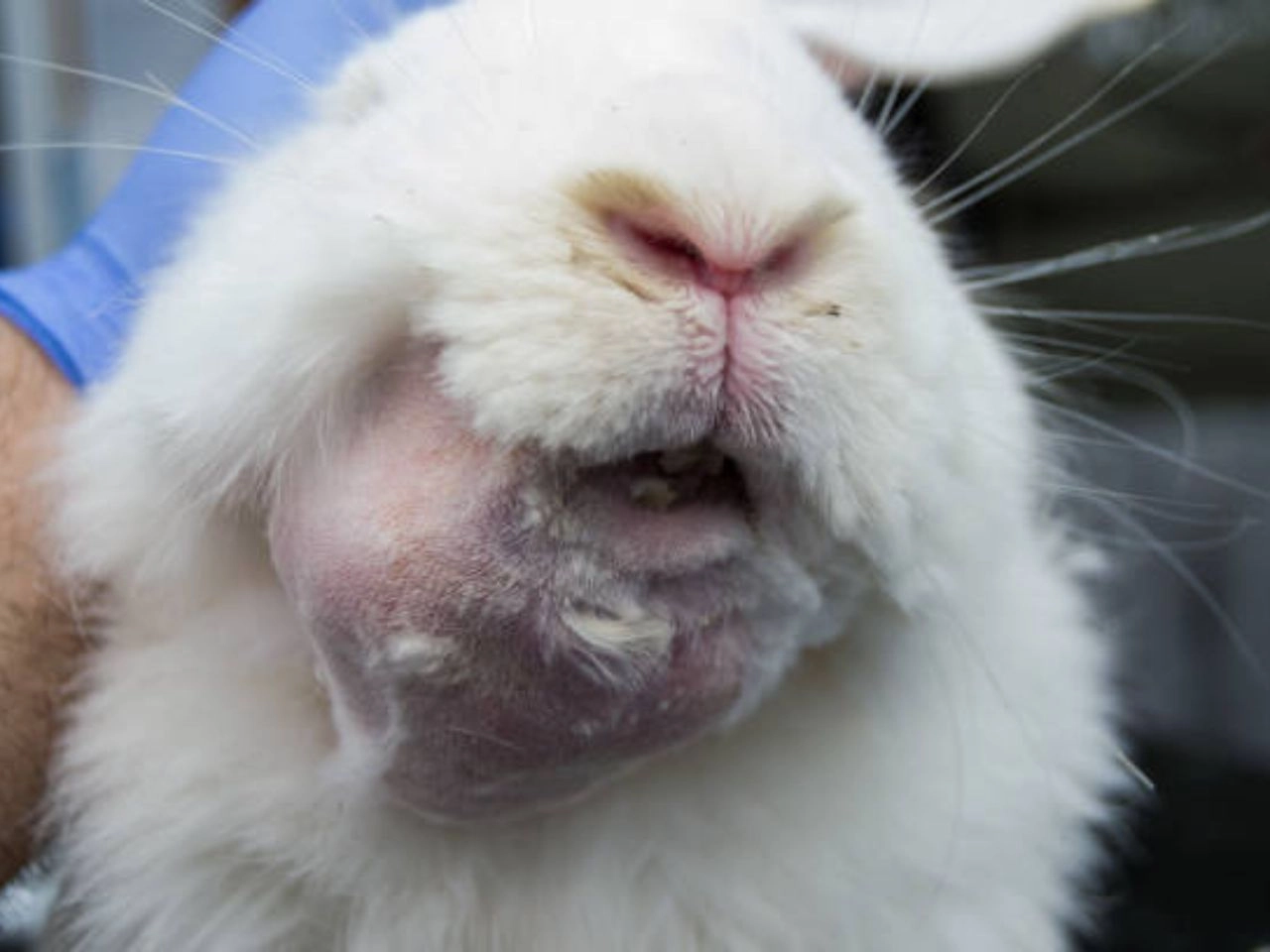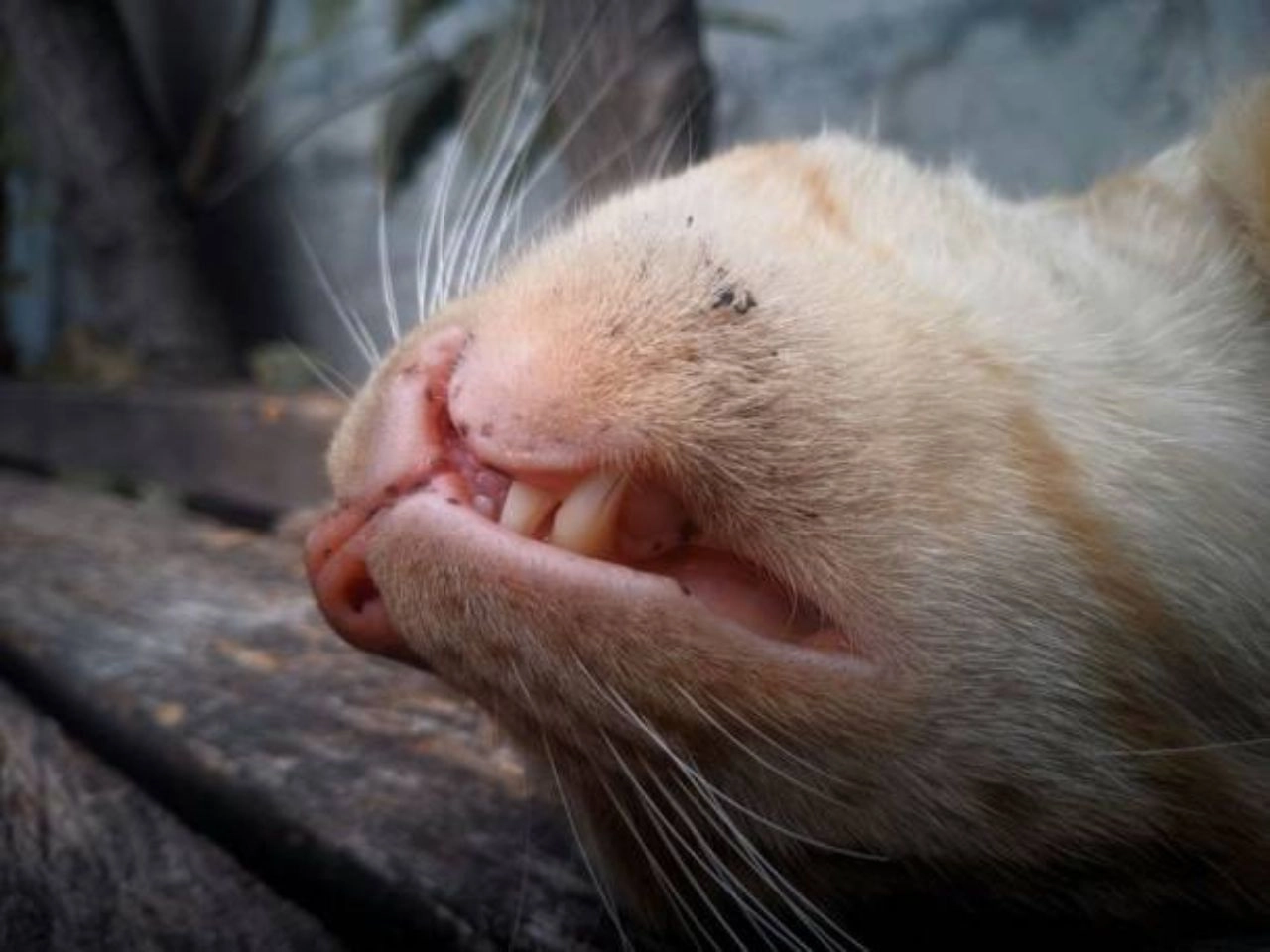A rabbit scent gland infection occurs when the glands near a rabbit’s anus become inflamed or infected. Symptoms include swelling, discharge, and foul odor.
Rabbits have scent glands located near their anus, which they use for marking territory. These glands can sometimes become infected, leading to inflammation and discomfort. Common causes include poor hygiene, blocked glands, or underlying health issues. It’s crucial to recognize symptoms early, such as swelling, discharge, and a foul odor, to prevent complications.
Regular cleaning and veterinary check-ups can help maintain your rabbit’s gland health. Prompt treatment ensures the infection doesn’t spread and your rabbit remains healthy and comfortable. Always consult a veterinarian if you notice any signs of infection.
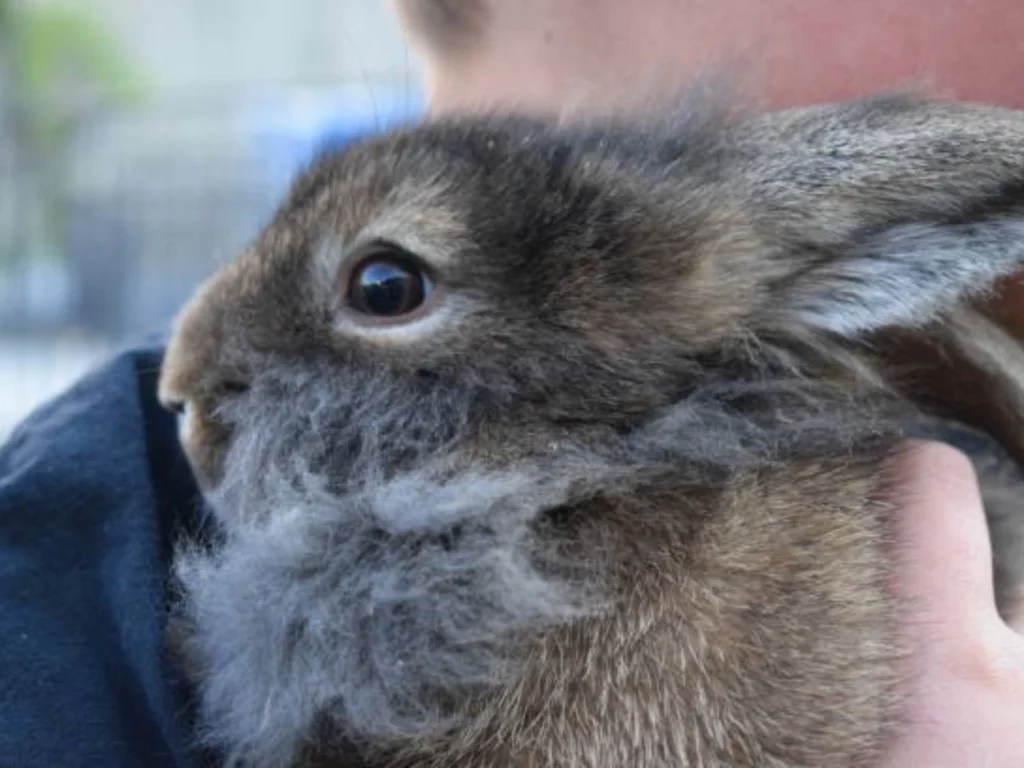
Introduction To Rabbit Scent Gland Issues
Rabbits have scent glands that play a vital role in their lives. These glands help them mark their territory and communicate with other rabbits. However, these glands can sometimes develop infections, which can lead to various health problems.
The Role Of Scent Glands In Rabbits
Scent glands are located near a rabbit’s anus and chin. These glands produce a unique smell that helps rabbits identify each other. Male rabbits use these glands to mark their territory. This marking behavior is crucial for their social interactions.
The scent glands also play a role in mating. They release pheromones that attract potential mates. These glands are essential for a rabbit’s social and reproductive behaviors.
Common Health Concerns In Rabbits
Rabbits can face various health issues, and infections in the scent glands are common. Here are some typical health concerns:
- Infections: Bacterial infections can cause the glands to become swollen and painful.
- Blockages: Debris can clog the glands, leading to discomfort and infection.
- Abscesses: Pus-filled abscesses may form, requiring medical intervention.
| Health Issue | Symptoms |
| Infections | Swelling, redness, and foul smell |
| Blockages | Discomfort, difficulty moving |
| Abscesses | Pus, swelling, and pain |
Recognizing Scent Gland Infections
Rabbits have scent glands located under their chins and around their genitals. These glands can get infected. Recognizing a scent gland infection early is crucial. It helps in providing timely treatment. This section will help you identify the signs of infection.
Physical Symptoms Of Infection
Physical signs of a scent gland infection are easy to spot if you know what to look for. Here are some common symptoms:
- Swelling: The area around the scent glands may appear swollen.
- Redness: Infected glands often turn red.
- Discharge: You may see pus or other discharge.
- Bad Odor: Infections can cause a foul smell.
- Scabs: There may be scabs or crusty areas.
| Symptom | Description |
| Swelling | The area around the glands looks puffed up. |
| Redness | The skin around the glands turns red. |
| Discharge | Pus or liquid may come out from the glands. |
| Bad Odor | The infection produces a strong, foul smell. |
| Scabs | Crusty patches form around the infected area. |
Behavioral Changes In Affected Rabbits
Besides physical symptoms, rabbits with scent gland infections may show behavioral changes. These changes can indicate discomfort or pain. Watch for these signs:
- Less Active: The rabbit may become less playful.
- Loss of Appetite: The rabbit may eat less or stop eating.
- Frequent Grooming: The rabbit may groom the infected area more often.
- Hiding: The rabbit may hide more than usual.
- Grunting: The rabbit may make grunting sounds when touched.
These behavioral changes are important. They help you understand that your rabbit might be in pain. If you notice any of these symptoms, consult a vet immediately.
Causes Of Scent Gland Infections
Rabbit scent gland infections can cause discomfort for your pet. Understanding the causes is crucial to prevent and treat these infections effectively.
Bacterial Vs. Fungal Infections
Bacterial infections are common in rabbit scent glands. Bacteria like Staphylococcus and Pasteurella can invade the glands. These bacteria thrive in dirty environments.
Fungal infections are less common but still possible. Fungi such as Malassezia can infect the scent glands. Moist and warm conditions favor fungal growth.
Environmental Factors Contributing To Infections
Dirty cages and litter boxes can lead to infections. Unsanitary conditions allow bacteria and fungi to thrive. Regular cleaning is essential.
Poor ventilation can also contribute. Stuffy, humid environments are breeding grounds for bacteria and fungi. Ensure your rabbit’s habitat is well-ventilated.
Diet and hydration play a role too. A poor diet can weaken your rabbit’s immune system. Ensure a balanced diet and plenty of fresh water.
| Factor | How It Contributes |
| Dirty environment | Harbors bacteria and fungi |
| Poor ventilation | Creates humid conditions |
| Inadequate diet | Weakens immune system |
Diagnosing Scent Gland Issues
Rabbits have scent glands that can get infected. This can cause pain and other health problems. It’s important to diagnose these issues early. Knowing the signs and getting help from a vet can make a big difference.
Veterinary Procedures For Diagnosis
Vets use different methods to check for scent gland infections. First, they will perform a physical examination. They will look for redness, swelling, and discharge around the scent glands.
Next, they might take a sample of the discharge. This can help identify the bacteria causing the infection. The vet may also use a microscope to look for signs of infection.
In some cases, vets may recommend imaging tests. X-rays or ultrasounds can show if the infection has spread. These tests give a clearer picture of what’s happening inside the rabbit’s body.
Understanding Test Results
After the tests, the vet will explain the results. If bacteria are found, they will discuss treatment options. This could include antibiotics or antibacterial ointments. The vet will also check for any other health issues.
Here is a simple table to understand the possible test results and their meanings:
| Test Result | Meaning |
| Bacteria Found | Infection may be severe, and more treatment needed |
| No Bacteria | No infection, but other issues may be present |
| Imaging Shows Spread | Infection may be severe, more treatment needed |
Home Care For Mild Infections
Rabbit scent gland infections can be worrisome. With proper home care, mild infections can be managed effectively. This section will guide you through essential cleaning techniques and over-the-counter remedies.
Cleaning Techniques For Scent Glands
Regular cleaning of your rabbit’s scent glands can prevent infections. Follow these simple steps:
- Gather Supplies: You will need warm water, cotton swabs, and a mild antiseptic.
- Position Your Rabbit: Place your rabbit on a soft towel. Ensure it feels safe and secure.
- Clean Gently: Dip a cotton swab in warm water. Gently clean around the scent glands.
- Use Antiseptic: Apply a small amount of mild antiseptic to another cotton swab. Clean the infected area carefully.
- Dry the Area: Ensure the area is dry before letting your rabbit go.
Over-the-counter Remedies
Some over-the-counter remedies can help manage mild infections. Consider these options:
| Remedy | Usage |
| Antibacterial Ointment | Apply a thin layer to the infected area. Use as directed on the package. |
| Saline Solution | Clean the area with saline solution to reduce bacteria. |
| Herbal Sprays | Use herbal sprays designed for pets. Ensure they are safe for rabbits. |
Professional Treatments
Rabbit scent gland infections need professional treatments for effective healing. Vets use various methods to treat these infections. The methods include antibiotics and surgical interventions.
Antibiotics And Their Use
Antibiotics are a common treatment for rabbit scent gland infections. Vets prescribe these medicines to fight bacteria. It’s crucial to follow the vet’s dosage instructions.
Some common antibiotics for rabbits include:
- Enrofloxacin
- Trimethoprim-sulfamethoxazole
- Metronidazole
These antibiotics help reduce swelling and pain. They also stop the infection from spreading. Always complete the full course of antibiotics to ensure the infection is completely gone.
Surgical Interventions
Sometimes, antibiotics are not enough. In severe cases, surgical interventions are necessary. Vets perform surgery to clean out infected glands.
The surgical process involves:
- Administering anesthesia to the rabbit.
- Making a small incision near the infected gland.
- Draining pus and cleaning the area.
- Stitching the incision to promote healing.
After surgery, rabbits need proper care. This includes:
- Administering prescribed pain relief.
- Ensuring a clean living environment.
- Monitoring for signs of infection.
Regular vet check-ups are vital after surgery. They help in ensuring the rabbit’s full recovery.
| Treatment | Purpose | Follow-Up |
| Antibiotics | Fight bacterial infection | Complete full course |
| Surgery | Remove infected tissue | Regular vet check-ups |
Preventing Infections
Preventing infections in rabbits is crucial for their overall health. Rabbit scent gland infections can cause discomfort and serious health issues. By focusing on diet, nutrition, and hygiene, you can help your rabbit stay healthy and happy.
Diet And Nutrition For Healthy Glands
A balanced diet is essential for maintaining healthy scent glands. Provide your rabbit with fresh hay, vegetables, and a small number of pellets. Fresh hay should make up most of their diet.
- Fresh Hay: Helps with digestion and keeps glands functioning well.
- Vegetables: Offer leafy greens like spinach and kale.
- Pellets: Choose high-fiber pellets to support gland health.
Ensure your rabbit has access to clean, fresh water at all times. Hydration is key to preventing gland infections.
Hygiene Practices For Rabbits
Keeping your rabbit clean is vital to prevent infections. Regularly check and clean their scent glands.
- Weekly Checks: Inspect the scent glands for any signs of infection.
- Cleaning: Use a damp cloth to gently clean around the glands.
- Grooming: Brush your rabbit regularly to keep their fur clean.
Maintain a clean living environment for your rabbit. Clean their cage and litter box frequently to reduce the risk of infections.
| Task | Frequency |
| Inspect Glands | Weekly |
| Clean Cage | Daily |
| Brush Fur | Weekly |
Complications Of Untreated Infections
Rabbit scent gland infections can cause serious health issues. Ignoring these infections leads to severe complications. Understanding these risks helps in early detection and treatment.
Potential For Systemic Illness
Untreated infections can spread throughout the rabbit’s body. This is known as systemic illness. Bacteria from the infection enter the bloodstream. This can lead to life-threatening conditions.
Rabbits may exhibit signs of lethargy and appetite loss. Early detection is crucial to prevent these severe outcomes. Veterinary intervention is often required to manage systemic illness.
Impact On Rabbit Social Behavior
Infections can also affect a rabbit’s social behavior. Rabbits are social animals and enjoy interacting with others. An infected rabbit may become withdrawn and irritable.
Pain and discomfort from the infection lead to behavioral changes. Social isolation can occur, affecting the rabbit’s overall well-being. Timely treatment helps maintain their social health.
| Complication | Description |
| Systemic Illness | Bacteria spread through the bloodstream, causing severe health issues. |
| Behavioral Changes | Rabbits become irritable and withdrawn due to pain and discomfort. |
| Social Isolation | Infected rabbits may avoid interacting with others, affecting their well-being. |
- Early detection is essential for preventing complications.
- Veterinary care can treat infections and prevent systemic illness.
- Observing behavior helps in identifying potential infections early.
- Monitor your rabbit’s behavior closely.
- Seek veterinary care at the first sign of infection.
- Ensure a clean living environment for your rabbit.
Recovery And Aftercare
Rabbit scent gland infections can be distressing. Proper recovery and aftercare are essential for your rabbit’s health. Follow these guidelines to ensure a smooth healing process.
Post-treatment Care Guidelines
After treatment, your rabbit needs special attention. Follow these post-treatment care guidelines to help your rabbit recover:
- Administer prescribed medications on schedule.
- Keep the wound clean to prevent further infection.
- Provide a quiet and comfortable environment for your rabbit.
- Monitor your rabbit’s appetite and ensure they eat well.
- Hydrate your rabbit by providing fresh water.
Monitoring For Recurrence
It’s important to keep an eye on your rabbit after treatment. Here are some tips for monitoring for recurrence:
- Check the scent glands regularly for signs of infection.
- Look for swelling, redness, or discharge around the glands.
- Observe your rabbit’s behavior for any signs of discomfort.
- Consult your vet if you notice any unusual symptoms.
Proper care and vigilance are key to a successful recovery. Follow these steps to help your rabbit heal and stay healthy.
Understanding The Cost Of Care
Rabbit scent gland infections can be costly. Understanding these costs helps in planning your rabbit’s care. This section breaks down the financial aspects and insurance options for treating rabbit scent gland infections.
Financial Considerations
Treating rabbit scent gland infections involves several costs. These can vary depending on the severity and location of the infection.
Here is a breakdown of potential expenses:
- Veterinary Consultation: Initial vet visits can cost between $50 to $100.
- Medications: Antibiotics and other medications range from $20 to $50.
- Surgical Procedures: In severe cases, surgery may be needed, costing between $200 to $500.
- Follow-up Visits: Additional check-ups might be necessary, each costing around $30 to $60.
These costs can add up quickly. It’s important to budget for these expenses to ensure your rabbit gets the care it needs.
Insurance Options For Pet Rabbits
Pet insurance can help manage the costs of treating rabbit scent gland infections. Several insurance companies offer plans that cover exotic pets, including rabbits.
Consider the following when choosing an insurance plan:
- Coverage: Ensure the plan covers infections and related treatments.
- Premiums: Monthly premiums can range from $10 to $30, depending on the coverage.
- Deductibles: Check the deductible amount, which may range from $50 to $200 per year.
- Reimbursement: Some plans reimburse up to 90% of veterinary costs.
Having insurance can provide peace of mind. It ensures that financial constraints do not hinder your rabbit’s health care.
Here is a table summarizing the potential costs and insurance options:
| Expense | Cost Range |
| Veterinary Consultation | $50 – $100 |
| Medications | $20 – $50 |
| Surgical Procedures | $200 – $500 |
| Follow-up Visits | $30 – $60 |
- Monthly Premiums: $10 – $30
- Deductibles: $50 – $200 per year
- Reimbursement: Up to 90% of costs
Understanding these costs helps in making informed decisions. It ensures your rabbit gets the best care possible.
Resources For Rabbit Owners
Rabbits can suffer from various health issues, including scent gland infections. Knowing where to find help and information is crucial. Below, we list some essential resources for rabbit owners.
Support Groups And Communities
Joining support groups and communities can provide valuable insights and support. Here are some options:
- Online Forums: Websites like RabbitTalk and BinkyBunny offer forums where you can ask questions and get advice.
- Social Media Groups: Facebook and Reddit have many groups dedicated to rabbit care. Try joining groups like “Rabbit Owners” or “House Rabbit Society”.
- Local Clubs: Many cities have local rabbit clubs. These clubs often meet regularly and can offer hands-on advice.
Educational Materials And Workshops
Learning more about rabbit care can help you prevent and treat scent gland infections. Here are some educational resources:
- Books: Books like “The House Rabbit Handbook” and “Rabbit Health in the 21st Century” are excellent resources.
- Websites: Websites like Rabbit.org and PetMD offer detailed articles on rabbit care and health.
- Workshops: Many local animal shelters and veterinary clinics offer workshops on rabbit care. These workshops can be very informative.
For a quick reference, here’s a table summarizing these resources:
| Resource Type | Examples |
| Online Forums | RabbitTalk, BinkyBunny |
| Social Media Groups | Facebook “Rabbit Owners”, Reddit “r/Rabbits” |
| Local Clubs | City-specific rabbit clubs |
| Books | “The House Rabbit Handbook”, “Rabbit Health in the 21st Century” |
| Websites | Rabbit.org, PetMD |
| Workshops | Shelters, Veterinary clinics |
FAQ(Rabbit Scent Gland Infection)
What Causes Rabbit Scent Gland Infection?
Rabbit scent gland infections are often caused by bacteria. Poor hygiene and blocked glands can also contribute.
How To Identify A Scent Gland Infection?
Look for swelling, redness, and discharge around the scent glands. Your rabbit may also show signs of discomfort.
Is A Rabbit Scent Gland Infection Serious?
Yes, it can be. Untreated infections can lead to severe health issues, including abscesses and systemic infections.
How To Treat A Rabbit Scent Gland Infection?
Consult a vet for appropriate antibiotics. Regular cleaning of the scent glands is also crucial for prevention.
Caring for your rabbit’s health is vital. Regularly check and clean their scent glands to prevent infections. Quick action can save your rabbit from discomfort. Always consult a vet for persistent issues. By staying vigilant, you ensure your rabbit lives a happy, healthy life.
